#compost
Text
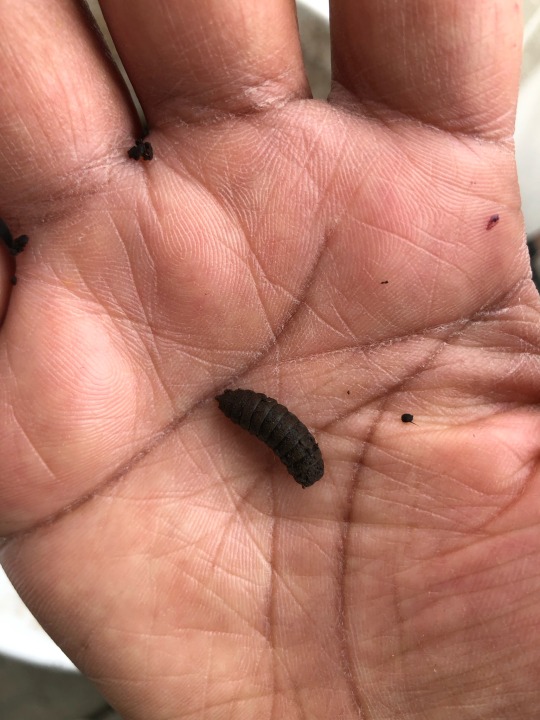
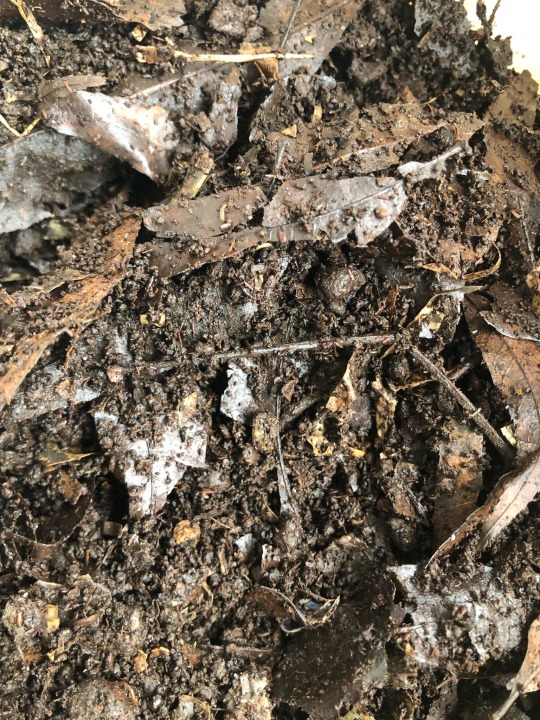
I love how my compost keeps them safe and warm.
181 notes
·
View notes
Text
I got a job as the tree tender for my local park but the only way to get to the trees was through a machine that composts tree waste. I got fired for getting to the trees through the front door.
308 notes
·
View notes
Text
The new 'compost obligatoire' rules came into force on 1 January 2024. Here's what they entail.
As of 1 January 2024, organic waste recycling is mandatory in France under new 'compost obligatoire' rules.
With support from the government’s Green Fund, municipalities must provide residents with ways to sort bio-waste, which includes food scraps, vegetable peels, expired food and garden waste.
Households and businesses are required to dispose of organic matter either in a dedicated small bin for home collection or at a municipal collection point. Previously, only those who generated over five tonnes of organic waste per year were required to separate it.
The waste will then be turned into biogas or compost to replace chemical fertilisers. Alternatively, it can be composted at home.
The obligation is currently on local authorities to provide an easy means for households to compost or separate organic waste.
While facilities are rolled out, there will not be fines imposed for non-compliance. It is yet to be seen whether stricter rules will be imposed in future.
One-third of household waste is bio-waste
Organic waste from food and gardens accounts for almost one-third of household waste. When it is mixed with other rubbish, it typically ends up in landfills or incinerators, where it produces heat-trapping greenhouse gases like methane and CO2.
Food waste is responsible for about 16 per cent of the total emissions from the EU food system, according to the European Commission. Globally, food loss and waste generates around 8 per cent of all human-caused emissions annually, the UN says.
It can also contaminate packaging destined for recycling like paper, plastic and glass.
In 2018, only 34 per cent of the EU’s total bio-waste was collected, leaving 40 million tonnes of potential soil nutrients to be discarded, according to NGO Zero Waste Europe.
In France, an estimated 82 kg of compostable waste per person is thrown away each year.
Is bio-waste separation mandatory in other European countries?
Under the EU’s Waste Framework Directive, bio-waste collection is being encouraged this year, but it stops short of setting mandatory targets.
In many European countries, organic waste separation has already been implemented at the municipal level.
Milan in Italy has been running a residential food waste collection programme since 2014. Households were given dedicated bins and compostable bags to kick off the scheme.
Elsewhere, taxes or bans on incinerating bio-waste have encouraged similar schemes, with separate bins and home composting widespread in Austria, the Netherlands and Belgium.
The UK announced plans to roll out separate food waste collection in 2023. It remains voluntary for households in England, but is more strictly enforced in Wales and for business owners.
How to sort your bio-waste
Ideally, all waste - including organic matter - should be kept to a minimum.
This can be achieved through careful meal planning. Consuming, freezing or preserving food before it expires along with using every part of an ingredient also help to reduce waste. Some food waste can even be repurposed into animal feed.
Any food waste that cannot be saved or repurposed should be either composted or separated for collection. This includes uneaten food scraps, baked goods, dairy products, eggshells, fruit and vegetables and their peels, mouldy food, pet food, raw and cooked meat and fish, bones, tea and coffee grounds.
Liquids, non-food products and packaging should not be placed in bio-waste bins.
-via EuroNews.Green, January 2, 2024
#france#composting#eu#european union#organic waste#biofuels#recycling#sustainability#food#food waste#compost#carbon dioxide#carbon emissions#sustainable living#good news#hope
175 notes
·
View notes
Text
Things are starting to happen in the garden
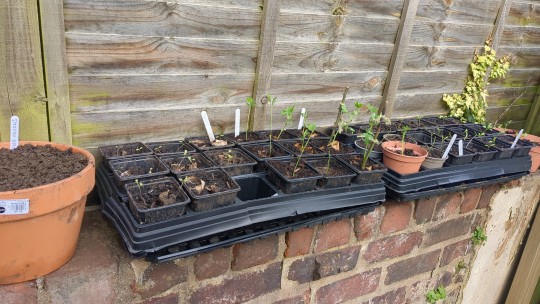
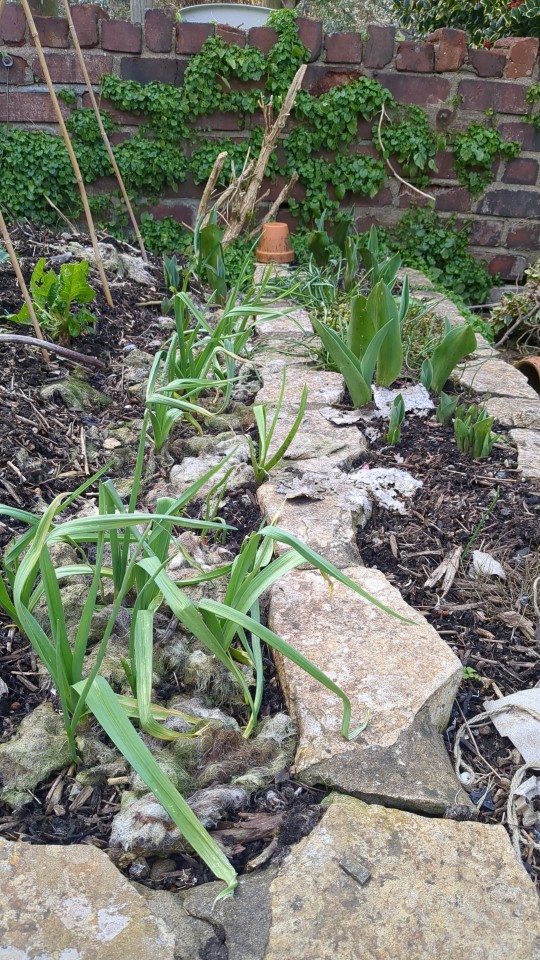
Seedlings! Tulips! Buds bursting!
The fruit bushes I planted over winter are showing signs of life!

I planted these peas outside last week. It's too early, but they were desperate to LIVE and to CLIMB. I could not give them the life they wanted indoors. It snowed pretty much immediately, and was frosty for several days. And yet, the peas remain unbothered and flourishing.
I had a 100% germination rate with these guys too. The variety is Lord Leicester if anybody is interested.
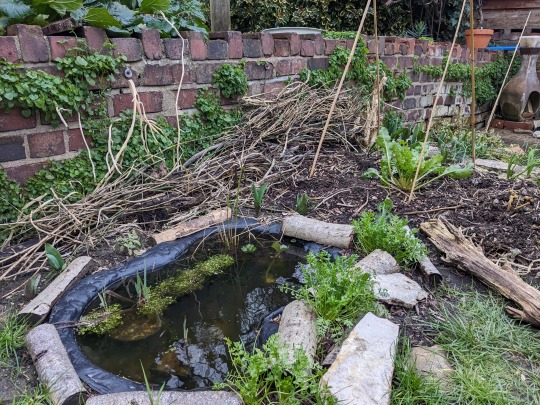
I've stacked up a load of old twigs and prunings which were lying around to make a bit of a habitat wall area. I'm hoping this will one day give frogs a safe passage to the pond. In the shorter term, I'm wondering if any climbing plants might like to use it as a support. Does anybody have experience with this?
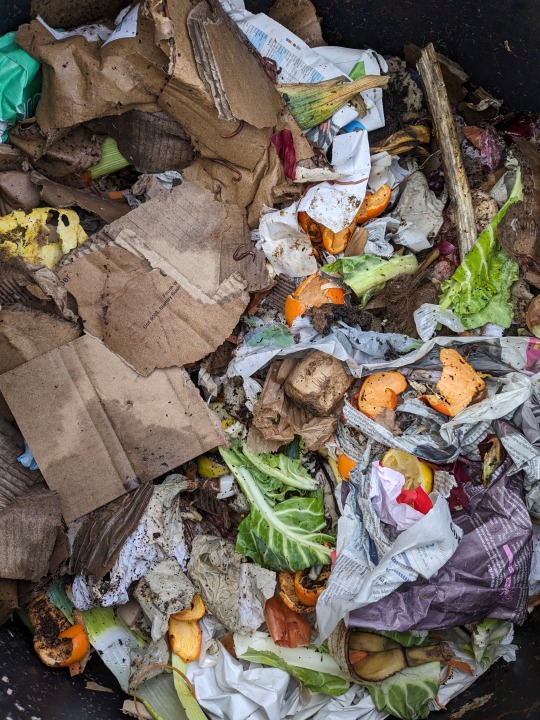
This is the inside of the compost bin. I just like to look at it :)
#permaculture#small space garden#urban gardening#solarpunk#peas my beloved#compost#shall i compare thee to a february pea?#no thou art nowhere near as lovely
112 notes
·
View notes
Text

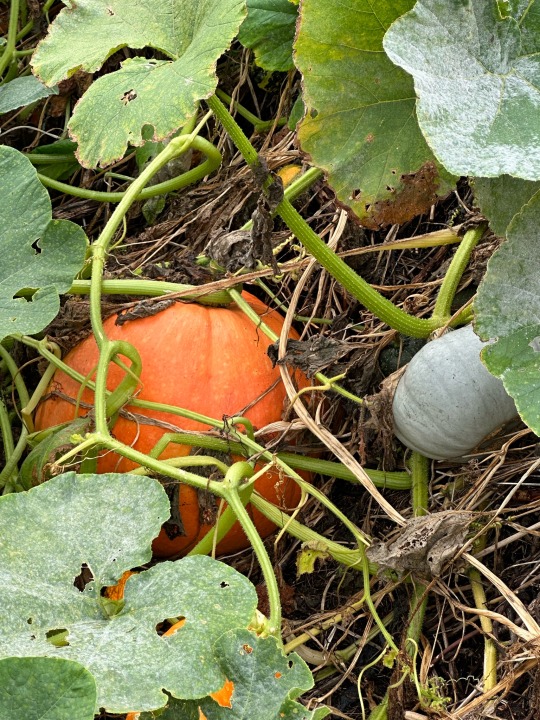
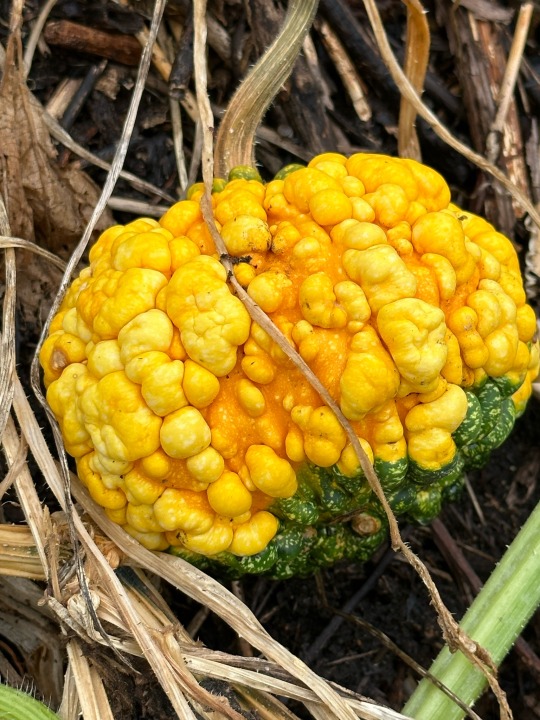
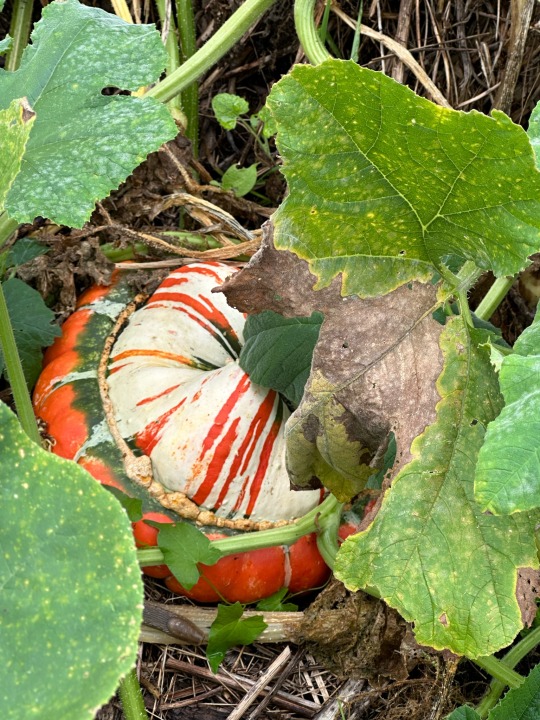


Plant of the Day
Tuesday 31 October 2023
The large compost heaps at Great Dixter, East Sussex, UK, formed an excellent growing area for pumpkins (Cucurbita pepo) and gourds. These tender annual plants thrive on the humus rich heaps being warmed by the heat of the decomposition.
Jill Raggett
#cucurbita#pumpkins#gourds#tender#annuals#compost#compost heap#Great Dixter#plants#horticulture#garden#gardens#Sussex#vegetable garden#vegetable
314 notes
·
View notes
Text
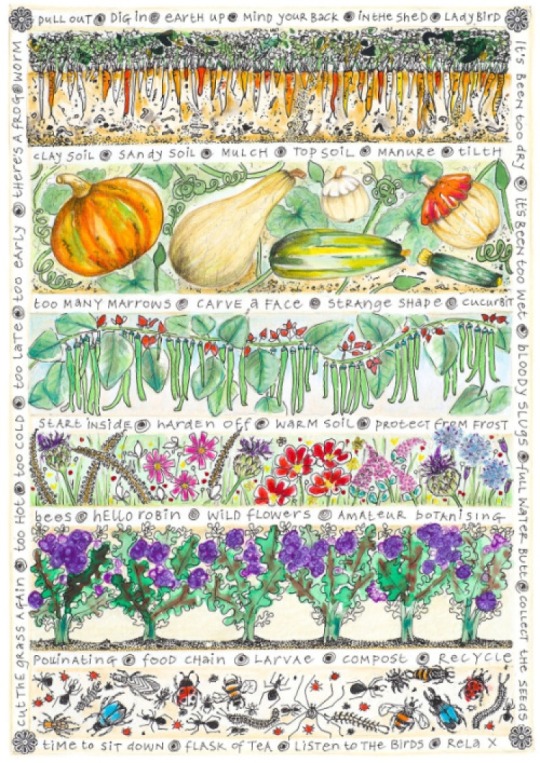
Vegetable Patch II - Fiona Willis
British , b. 1953 -
Watercolour and ink , 24.5 x 32.4 cm.
144 notes
·
View notes
Photo
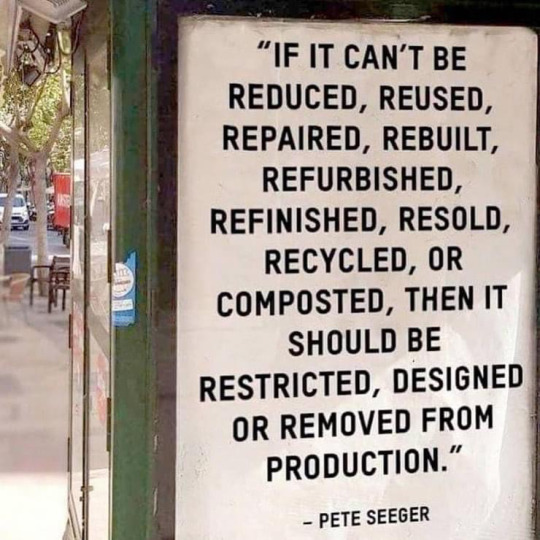
“If it can’t be reduced, reused, repaired, rebuilt, refurbished, refinished, resold, recycled or composted, then it should be restricted, redesigned or removed from production.”
― Pete Seeger
youtube
#Pete Seeger#recycling#folk music#famous quotes#quotes#quote#compost#reduce#reduce reuse recycle#recylcing#solarpunk#solar punk#right to repair
608 notes
·
View notes
Photo
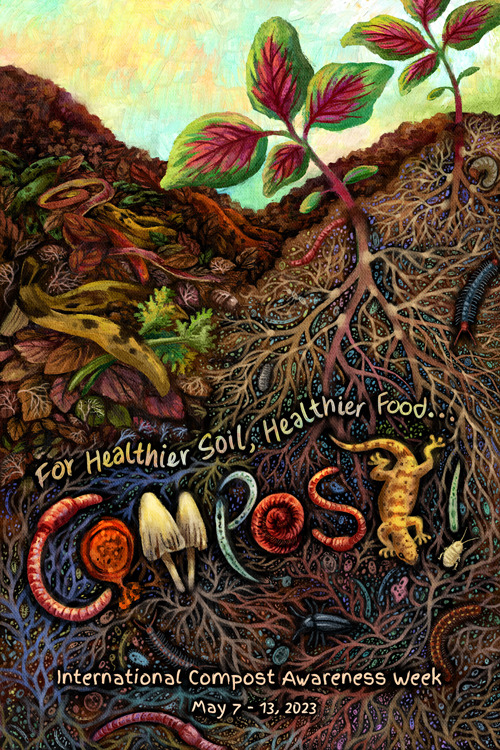
International Compost Awareness week starts today!
Running from May 7-13 2023. https://www.compostfoundation.org/ICAW/ICAW-Home
Hooray for compost!!!!!!
#compost#Compost Awareness Week#garden#gardeners on tumblr#organic food#eco system#nature#soil#plants#living earth
429 notes
·
View notes
Text
Easy zero waste tip no. 3: Know your R's
Refuse: If you don't acquire the thing that will become waste in the first place, it won't produce further waste. Simple enough. Refuse that which you do not need. Example: All that cute stuff on that Buzzfeed article? You don't need it. Don't even click the link.
Reduce: If you need something, get the minimum. Note that this doesn't mean the cheapest option- it means the most effective and environmentally friendly option. Example: Instead of buying disposable razors, or a razor with changeable heads, try out a safety razor. Instead of using plastic toothbrushes, try out bamboo, and instead of toothpaste in disposable tubes, try out some toothpaste bits. Instead of buying chicken breasts for one thing and chicken broth for another, get a whole chicken and learn to butcher its meat, and make broth from the skin and bones.
Reuse: This means both being mindful of purchases, so you're only buying things that are reusable whenever possible (Example: use beeswax wrap instead of saran wrap), and repurposing things you've already bought (Example: use those little Oui yogurt containers to start seeds for your garden).
Recycle: Find out what your local recycling program actually recycles, and be mindful. Aluminum is a safe bet most of the time, as is paper/cardboard; but plastics, most of the time, are a dud, so try to refuse, reduce, and reuse plastic whenever possible so you don't even need to worry about recycling it. This also refers to donation- that's another valid way to recycle things!
Rot: If you have a yard, start a compost pile! Just try to get a 50/50 balance of food scraps to brown matter (paper, dry leaves, etc). If you have a freezer, you can stick a container in there to act as a compost thing until you can bring it to a compost facility, such as a local garden, or farm. If you don't have the ability to do either of these things, then you can see if there's a subscription compost service in your area (I used CompostNow for ages, they're great).
Understanding these five principles, and looking at them in this order, can make things easier. Next time you're buying something, or about to throw something away, consider which of these might allow you to reduce your waste output in the future.
#zero waste#sustainability#anti consumerism#anti consumption#eco friendly#sustainable#environment#five r's#refuse reduce reuse recycle rot#reduce reuse recycle#recycle#ecofriendly#recycling#compost#composting
176 notes
·
View notes
Text
Dispose Leaf Piles Together
Dispose Leaf Piles Together

Changes the "Dispose", "Compost" and "Burn" actions for a leaf pile to include all piles (within a configurable distance) to be actioned together.
185 notes
·
View notes
Text

i made this infographic for a school project but please feel free to use it!! not necessary but if you would like to credit me my name is Tatum St. James :3
(note: everyone will tell you something different about weeds that have gone to seed. a good general rule is if you're doubtful about anything, just don't put it in!)
135 notes
·
View notes
Text
We'll look later at what has ensued over the last 100 years in particular, but suffice to say, what a keen gardener knows now, they also knew in the late 1800s – that compost is king, complexity seems to create resilience, and that a well-grown vegetable tastes of the soil in which it was grown.
"Soil: The incredible story of what keeps the earth, and us, healthy" - Matthew Evans
#book quote#soil#matthew evans#nonfiction#history#gardener#gardening#1800s#19th century#soil health#compost#complexity#resilience#vegetables#quality products
66 notes
·
View notes
Text
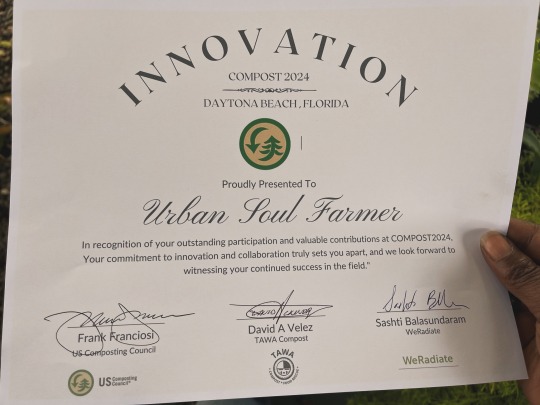





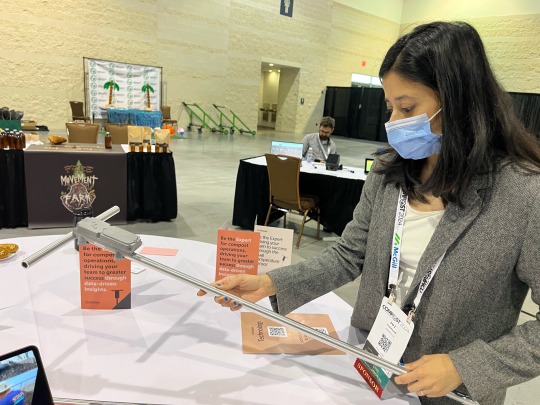

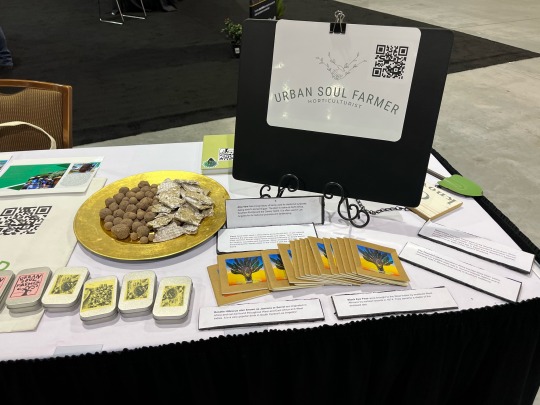
I had a blast at the International compost council conference in Daytona Beach, Florida meeting people in this industry from all over the world and country. Thousands of attendees and I was one of 5 innovative micro businesses invited to represent Urban Soul Farmer.
So much to process including how I will move forward in making USF even more accessible.
There is no Urban Soul Farmer without community. Forever grateful 🙏🏾🙌🏾💚😁
40 notes
·
View notes
Text
Make a worm composting bin!
Worm composting (also called vermicomposting) uses worms to break down your compost faster and with less smell. Plus you can make the bin whatever size you want, which makes it a great option for smaller spaces.
Here are some instructions to DIY your own worm compost bin.
Here are some instructions for a smaller DIY bin with 5-gallon buckets.
Here��s another set of instructions for a 5-gallon bucket worm bin.
Go forth and put some worms in your compost!
148 notes
·
View notes
Text
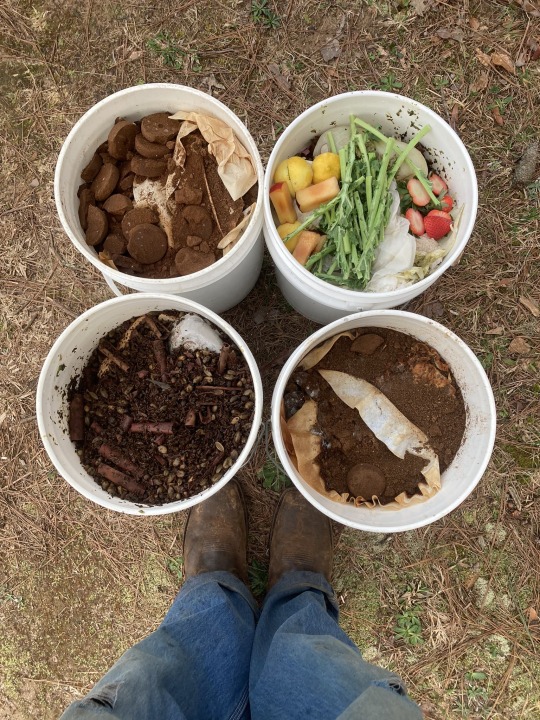
Old school simplicity with new school flava.
#visionarygrowingsolutions#atlanta urban ag#compost#simple food small farmz#biodynamic#soil#biodiversity#soil biology#permaculture#urban ag#simplefoodsmallfarmz#simple food small farmz air bnb agriculture experience#small farmz simple food#simple food#simple things#soil fertility#soil food web#soil biodiversity#soil creation#atlanta airbnd experience#air bnb experience atlanta#atlanta air bnb urban agriculture experence#airbnb experience#maurice small
32 notes
·
View notes
Text
youtube
We're a 10-acre urban farm in Phoenix, Arizona on a mission to turn "garbage" into food.
We use the power of Red Wiggler Worms, Black Soldier Flies, and hot compost piles to turn Valley waste into natural gardening products, vegetable starts, and produce.
What I appreciate about this video is that the whole process is delivered by someone who has obviously hosted this tour many times. His delivery is so clear and informative.
Despite the repetition, his enthusiasm for worm shines though the whole time!
31 notes
·
View notes